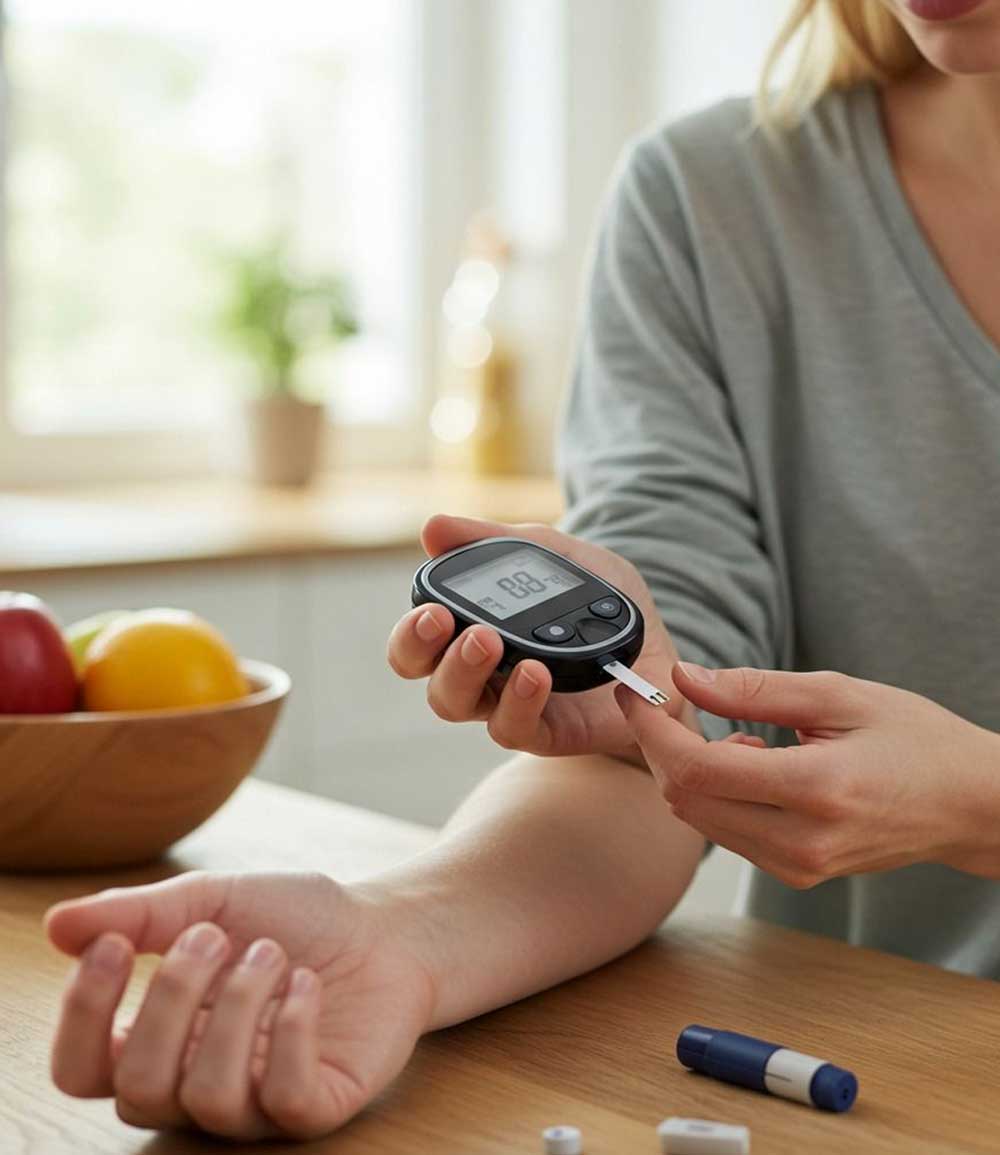For years, diabetes was boxed into a stereotype as the ‘sweet tooth’ disease that affected older adults or those with a family history. But today, the picture looks very different. We’re seeing young, fit, and often slim people being diagnosed with diabetes or prediabetes. And the culprits? Not laddoos or gulab jamuns, but stress, sleepless nights, and an always-on lifestyle.
’Gone are the days when sweets or family history were the only predictors of diabetes,’ says Dr Rashi Agarwal, Endocrinologist at Kokilaben Hospital. ’Now, sleep deprivation, chronic stress, and sedentary routines are potent metabolic disruptors,’ she adds.

The New Face Of Diabetes: Thin, Young, And Burnt Out
Traditionally, Type 2 diabetes was linked to age, obesity, and inactivity. But India is now witnessing a concerning shift, what experts call ‘lean metabolic dysfunction’.
In simple terms, you can look healthy on the outside but have hidden visceral fat (the kind that sits around your organs) and disrupted glucose metabolism on the inside.
This new pattern has its roots in:
- Urban stress and erratic schedules including late nights, skipped meals, and endless caffeine.
- Processed diets that contain refined carbs and sugary drinks posing as ‘energy boosters’.
- Epigenetic factors such as stress or malnutrition passed down generations.
- Sedentary jobs and sleep disruption especially in those glued to screens all day and night.
’Diabetes is no longer just about obesity, it’s about metabolic stress,’ Dr Agarwal explains.
When Stress Becomes Sugar
Your body’s stress response, designed for survival, can become self-sabotaging when it never switches off.
Chronic stress releases cortisol, a hormone that raises blood sugar and promotes fat storage, particularly around the belly. It also suppresses thyroid and reproductive hormones, leading to fatigue, cravings, and weight fluctuations, all red flags for insulin resistance.
And if you’re sleeping less than six hours? That’s a double blow. Poor sleep raises cortisol and ghrelin (the hunger hormone), making you crave sugar and carbs while slowing down your metabolism. ’Sleep deprivation mimics diabetes, it raises blood sugar and reduces insulin sensitivity,’ Dr Agarwal adds.
Why Young Women Are Particularly At Risk
Modern Indian women are doing it all - boardrooms by day, home responsibilities by night, but often at the cost of their health. ’Post-globalisation, more women are working than ever before, but societal expectations haven’t changed,’ Dr Agarwal points out.
The Result?
- Skipped meals and erratic eating patterns.
- Chronic sleep debt and emotional eating.
- Caffeine and processed food dependence.
This metabolic chaos often leads to PCOS (Polycystic Ovary Syndrome) a hormonal disorder fuelled by insulin resistance. Even lean women can develop it, and left unchecked, PCOS can progress to prediabetes or diabetes.
’PCOS isn’t just a gynaecological issue, it’s a metabolic one,’ Dr Agarwal explains. ’Addressing insulin resistance through sleep, diet, and stress regulation is key.’

The Modern Triggers We Don’t Talk About Enough
Beyond sugar and weight, several everyday habits quietly push us towards diabetes:
- Excess caffeine increases cortisol and disrupts sleep.
- Energy snacks and refined carbs spike blood sugar and worsen cravings.
- Skipping meals or bingeing after long gaps throws insulin rhythm off balance.
’Regular, fibre-rich meals at consistent times help stabilise blood sugar and mood,’ says Dr Agarwal. ’Reactive snacking, on the other hand, trains your body to expect glucose spikes.’
The Preventive Mindset: Start Early, Stay Consistent
Metabolic health isn’t built overnight, it’s a lifelong investment.
Dr Agarwal recommends:
- Annual fasting glucose and HbA1c tests after age 25, especially for those who are sedentary or under chronic stress.
- Tracking waist circumference (it’s more telling than weight).
- At least 150 minutes of exercise a week, a mix of cardio and resistance training.
- Prioritising 7–8 hours of restorative sleep and consistent meal timings.
- Practising stress management, mindfulness, yoga, or simply switching off.
Spot The Early Signs
Most metabolic disorders creep in silently. Watch out for subtle symptoms like:
- Constant fatigue or sugar cravings.
- Unexplained weight changes.
- Irritability, acne, or irregular periods.
- Brain fog or low motivation.
These may not seem urgent, but they’re often the body’s first SOS. ’If you catch prediabetes early, it’s completely reversible,’ Dr Agarwal stresses.
The Role Of Workplaces
Since lifestyle plays such a big part, organisations, too, have a moral responsibility. Dr Agarwal recommends including annual metabolic screenings - fasting glucose, HbA1c, thyroid, vitamin D, and liver and kidney profiles in employee health check-ups.
’Work stress, long hours, and irregular eating are pushing young professionals into metabolic dysfunction. Prevention must start at the workplace.’
The Takeaway?
Diabetes today wears a new face - young, ambitious, and exhausted. But awareness is power. With small, sustainable lifestyle shifts, this silent epidemic can be prevented with one balanced meal, one mindful breath, and one good night’s sleep at a time.